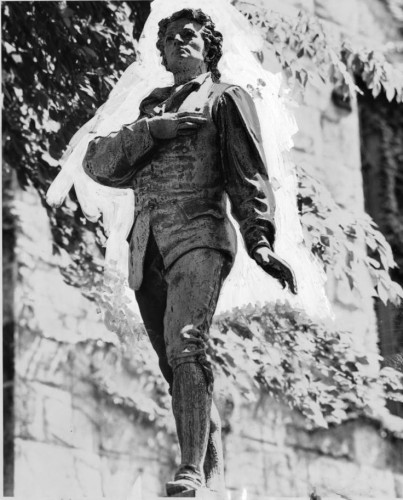On September 22, 1776, the British hanged Revolutionary War soldier Nathan Hale for spying. Born in Coventry in 1755, Hale attended Yale College and later became a schoolteacher. After hostilities erupted in Lexington and Concord in 1775, Hale joined a Connecticut militia and participated in the siege of Boston. In July 1775, Hale joined the Continental army’s Seventh Connecticut Regiment under Charles Webb of Stamford. Hale was promoted to captain, and in early 1776, he commanded a small unit defending New York City. The British captured New York City during the Battle of Long Island, and on September 8, 1776, Hale volunteered to go behind enemy lines to report on British troop movements.
On September 21, part of lower Manhattan was suspiciously burned in the Great New York Fire of 1776. After the fire, the British captured more than 200 American supporters. Hale, despite being disguised, was apprehended and questioned, and physical evidence of his spying was seized. On the morning of September 22, Hale was marched along the Post Road to a public house called the Dove Tavern and hanged. He was 21 years old. The site of the Dove Tavern is at the present-day corner of 66th Street and Third Ave, although there are two other locations in Manhattan that also claim to be the hanging site.
Many accounts of the hanging state that Hale was composed and spoke eloquently at the gallows. British officer Frederick MacKensie wrote in his diary on that day:
He behaved with great composure and resolution, saying he thought it the duty of every good Officer, to obey any orders given him by his Commander-in-Chief; and desired the Spectators to be at all times prepared to meet death in whatever shape it might appear.
Hale’s body was never recovered, and over the years, Nathan Hale’s memory and his sacrifice for his beliefs have been honored with everything from postage stamps to statues. In 1985, Nathan Hale became Connecticut’s official state hero.









